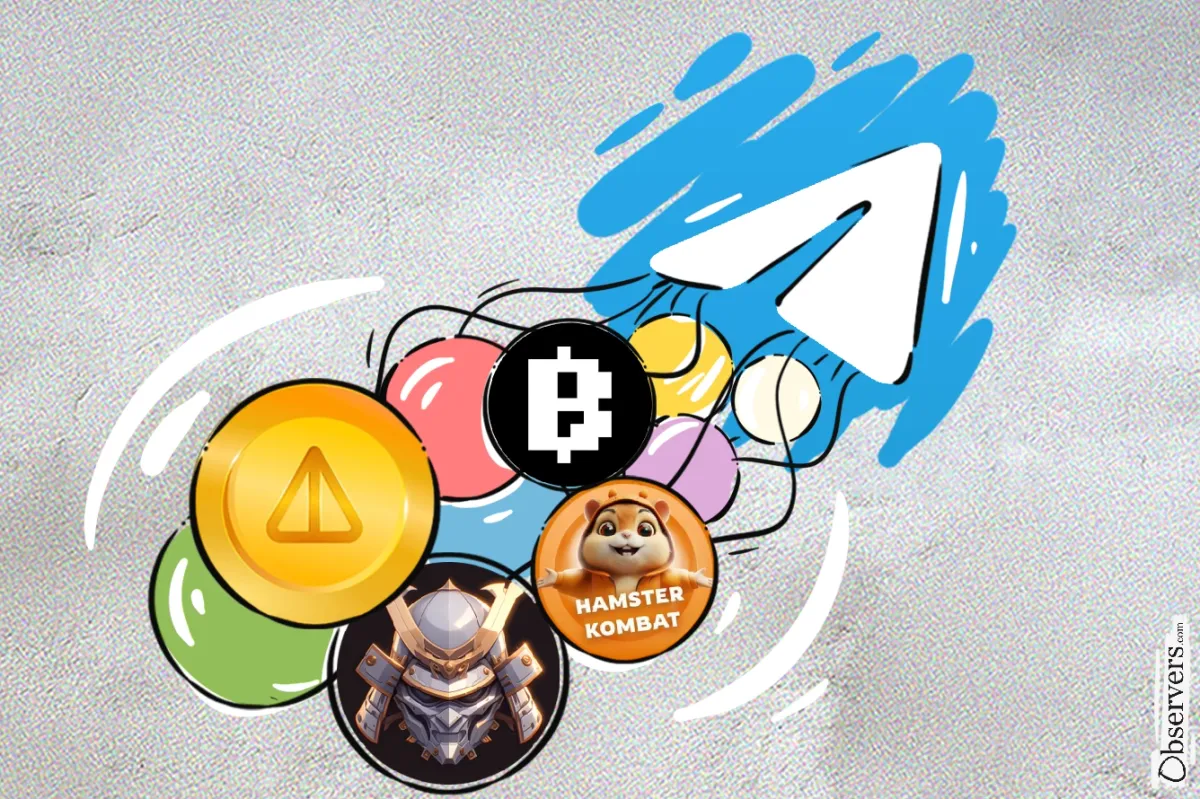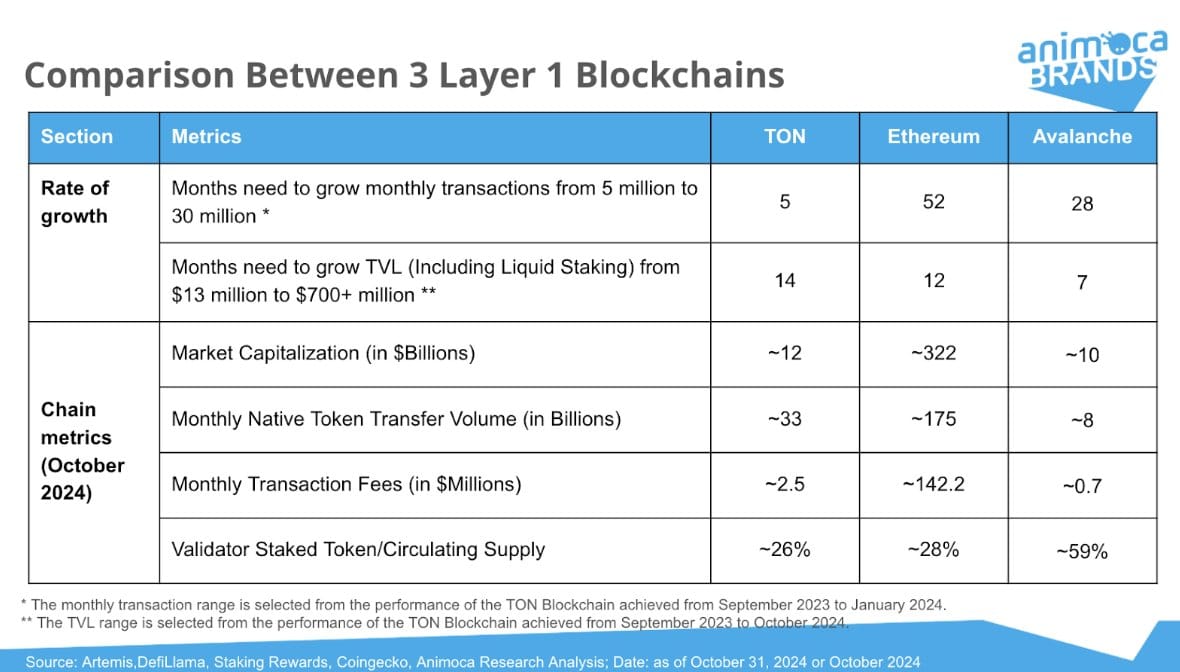
TON’s ecosystem strategy has drawn both applause and criticism, particularly for its reliance on mini-games and their constant airdrops. Now, as these same games rapidly lose users, critics are speaking out.
While Telegram's Mini Apps strategy may sometimes fall short of expectations, they still play a crucial role in accelerating the growth of the TON ecosystem. At this stage, their primary function is retaining crypto users with DeFi applications.
Tap Tap From Telegram to TON
In September 2023, the much-hyped TON Foundation and Telegram partnership pledged to onboard 30% of Telegram users to TON by 2028. The strategy that allowed the project to grow from 5 million to 30 million monthly transactions within just five months included three steps:
- Promote tap-to-earn social games on Telegram Mini Apps.
- Transform Mini App players into crypto holders by leveraging token airdrops.
- Foster user retention through the integration of DeFi applications.
The TON foundation supports all phases. Their Grants program supports the initial development of applications within the ecosystem and the migration of successful protocols or DApps from other blockchains. Currently, the program is focused on supporting the following areas: social Web3, DeFi, GameFi, and developer education.
The Open League, a long-term incentive program, is an alternative focused on fostering user retention via direct incentives and offers rewards to teams that deliver the highest performance within a set period.
Where Are The Popular Telegram Mini App Games Now?
Notcoin
The team behind the first popular clicker game Notcoin has introduced Earn, a native launch pool that rewards Telegram users for holding TON-based tokens—$NOT, $TON, and $DOGS—in the wallet. This wallet is integrated directly into Telegram's messenger app. The rewards come from their airdrops. 1.8M participants have already joined $BUILD pools with a total value of $160 million.
The team also launched another ‘almost DeFi’ project: Sticker Shop will sell digital sticker packs for Stars. The stickers have potential to become collectibles and will be tradable like NFTs. The initiative was first suggested by Durov.
Hamster Kombat
Hamster Kombat is one of the most popular tap-to-earn games, and at one point, it boasted 100 million monthly users. After the initial thrill calmed down, the users who worked hard tapping for rewards ended up with a few depreciating coins and now feel defrauded. However, the mini-app has not given up and continues to introduce new initiatives. The team is now launching DAO to liven up its community and bring utility to its native token.
Soratopia
Soratopia, the samurai-inspired game, has recently added various 'quest' tasks to the daily check-ins and in-game battles. Users can earn tokens by subscribing to various external accounts such as crypto exchanges and other mini apps. Promotion service is one way to monetize the user base and make the tapper games sustainable.
In parallel, the team is developing social gameplay with collaborative events and player-vs-player battle modes to build a stronger community.
Blum
Blum, currently the largest app with 28.5 million users has yet to launch a token. But it, too, has diversified its products. In addition to tapping falling flowers and waiting for the DEX launch, users can now create meme coins and trade them for $TON within the app’s memepad. The founders claim that it is now second to pump.fun in trading volumes and the number of daily launched tokens.
Is Losing Users As Bad As It Seems?
While critics claim that tapper games lose the users after the hype calms down, this seems to be a part of the plan:
“We've got the tap-to-earn for everyone, then a portion of those people can convert to sending crypto globally in DMs, super easy for anyone to do. And then a portion of those people will begin to start to use the more complicated DeFi products on TON. And this is the whole setup,ˮ - shared Jack Booth, former Head of Market Development at TON Foundation and co-founder of TON Society.
Experienced developers also understand that loyal users are the key to long-term success. One of the Blum founders, Vladimir Smerkis, shared that if only 1-2% of existing users continue using the Blum DEX, it will become one of the leading players on the market.
What Mini Apps Mean for TON and Telegram?
The Mini Apps' strategy has proven successful for both Telegram messenger and TON blockchain.
At the time of writing, around 1700 mini-apps were available on Telegram, only in the Ton blockchain category. Applications have boosted user activity and revenue on Telegram, especially from premium subscriptions and Toncoin's use in its ad platform.
As for Ton, Animoca Brands’ research showed that the platform is on track for its first $1 billion profit in 2024. The blockchain reached 30 million monthly transactions in just five months, a milestone that took Ethereum and Avalanche years to reach.
While still smaller than Ethereum in transaction fees and token transfers, TON outpaces similar-sized projects like Avalanche. On-chain Toncoin transfers have already reached 20% of Ethereum’s volume, showing its strong use within the ecosystem.

The features in Mini Apps — especially with their emoji decorations — are too simple and even childish for experienced users who are used to working with common trading interfaces. Some users can't tell the difference between the token on-chain and the token in the Telegram app
However, for new users, especially youngsters, this is precisely how to drive blockchain adoption: by seamlessly transforming their interactions into the real Web3.
TON is now leading in terms of expansion, hype, and visibility. While users looking for quick money are leaving the apps, some stay to benefit in the long term. This is a more typical pattern for the Web3 space.
The question remains: as recently engaged newbies gradually become seasoned users, will the ecosystem be able to properly meet the demand for more sophisticated and professional products?

